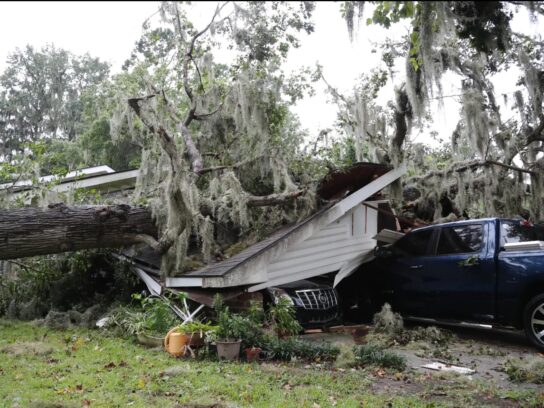
In 1833 the English economist William Lloyd published a pamphlet in which he described the hypothetical over-use of a parcel of grazing land, held in common by village farmers. Each farmer was rationally incentivized to graze more cattle on the land, but the result was collective disaster, with over-grazing and long-term destruction of the resource.
In 1968 ecologist Garrett Hardin first used the now-famous phrase “the tragedy of the commons” to describe this problem, and applied it to excessive world population growth and over-use of the world’s resources. Economists then linked this concept to “externalities,” a theory developed in the 1920s by Arthur Pigou, in which two parties engage in a transaction to their mutual benefit, but third parties, external to the transaction, suffer and are not compensated. For example, you sell me a car, you receive money, I get a car, and we are both happy — but the car creates a smokey exhaust that pollutes the air, and our neighbors suffer.
You may be asking, who gives a darn about all this theoretical drivel?
Well, you should.
These simple concepts explain the current climate crisis enveloping our planet, tell you why the air here in Montgomery County a few weeks ago was hazardous to your health, why summers here are now way too hot, and why you may want to consider moving overseas.
Huh?
Let me explain.
The world’s climate crisis was created due to the tragedy of the commons and externalities, as described above. You and I both want a nice house, cars, and trips to Europe. Each of these transactions satisfies us and the sellers, but the production processes for the goods create externalities that affect “the commons” – the liveable temperature of our planet, the common air we breathe, the water we extract from our aquifers, our previously pristine rivers and seas which are now filling up with plastics, and so on.
As Hardin said, “Ruin is the destination toward which all men rush, each pursuing his own best interest in a society that believes in the freedom of the commons.”
There are only three solutions: 1. Agreement among all parties to recognize the effects of consumption, and development of sustainable ways to avoid creating externalities; 2. Regulation of all parties to force sustainable, non-damaging behavior; or 3. Development of a regime to compensate third parties for all or most externalities, and to incorporate those costs into the price of the goods, which leads to less consumption.
In other words, when my cousin Billy Bubba Bob in Alabama wants to buy a new Ford F-150 pickup, he is going to have to agree, or be forced, to pay 20 percent extra to compensate everyone for all the nasty externalities he just dumped on the commons. Will Billy be happy about that? Nope.
I am not sanguine.
The 2023 Synthesis Report of the UN Intergovernmental Panel on Climate Change just stated that atmospheric CO2 levels were now higher than anytime in the last 2 million years, and nitrous oxide and methane levels were higher than anytime in the last 800,000 years. The panel said that “Human activities, principally through the emission of greenhouse gases, have unequivocally caused global warming…through unsustainable energy use, land use, lifestyles, and patterns of consumption…” and this human-caused “climate change is already affecting many weather and climate extremes in every region across the globe.”
Here in Maryland we are already experiencing smoke from Canada, excessive summer heat, and even the threat of monster hurricanes. According to FEMA, we Marylanders are fortunate that there are only four Community Disaster Resilience Zone census tracts in the state, and all are in the lower Eastern Shore. These are the areas most immediately threatened by global warming and sea rise.
But thinking of the future and your grandchildren, you may want to move somewhere less threatened. Where?
Well, my analysis shows that the few long-term desirable places, given a climate crisis that gets worse and lasts for many decades, will all be far north or far south. Northern destinations might include Norway, Sweden and Iceland. South is likely preferable, to escape the heat, pollution and smoke of the industrial north portion of the planet. Australia is out – it’s already plagued by massive wildfires. I have worked in most of the countries in southern Africa and do not recommend them, due to unstable political situations. Chile and Argentina are attractive from a climate point of view, although Chile is prone to earthquakes and has a weakening economy, while Argentina is in economic crisis.
My old stomping ground of the Republic of Vanuatu in the southwest Pacific has high volcanic islands not very vulnerable to sea rise, but sadly is threatened with floods, cyclones, droughts, earthquakes and volcanic eruptions.
The winner: New Zealand, isolated from northern hemisphere pollution, with cooling Pacific winds and as a bonus, an almost perfect political freedom score from Freedom House, with a 99 out of 100.
See you there?
Photos courtesy Lew Toulmin
- Cows eating in a common field inspired economist William Lloyd in 1833 to develop an early version of the theory of the tragedy of the commons.
- Map of the world shows countries in green that are ready for climate change, in orange that are less ready, and in red that are unready; from data developed by the Notre Dame Global Adaptation Initiative. The most-ready countries are, in order: Norway, Finland and Switzerland, and the worst-off countries in terms of readiness, from the bottom up, are Chad, the Central African Republic, and Eritrea.
- Image from the recent 2023 Synthesis Report of the UN Intergovernmental Panel on Climate Change, showing that a 3 to 4 degrees Celcius (5.4 to 7.2 degrees Fahrenheit) increase in world mean temperature will mean an increase of 7 degrees C (12.6 F) in hottest day temperatures in many areas (in dark red). Even an increase of only 2 degrees C (3.6 F) will mean substantial increases in the US, Europe, north Africa and Brazil; and this can already be seen in recent heat records in the US and around the globe.
- Map by the Federal Emergency Management Agency (FEMA) of Maryland, showing that the only census tracts immediately threatened by climate disaster (in bright aqua color), and thus eligible for Federal mitigation funds, are on the Eastern Shore. See: https://experience.arcgis.com/experience/e3bb8cb79d124a0ca38a05e48afb6fd6/page/Community-Disaster-Resilience-Zone-Viewer/ for a zoom-able map of the entire US.
- The US Capitol almost invisible in smoke from Canadian wildfires, 2023.
- Damage in Georgia from Hurricane Idalia, 2023.
- The devastation of the town of Lahaina on Maui, Hawaii, 2023.
- A map of the world by Freedom House, which analyzes political freedom in each country, including elections, oppression of minorities and corruption. Countries in green are rated as free, with yellow marginal and purple unfree. Some scores: India: 66/100; China: 9/100; Russia: 16/100; and Norway, Sweden and Finland, all 100/100. The USA is a pathetic 83/100, the same as Romania and Panama, and worse than Mongolia (84/100), Canada (98/100), Uruguay (96/100) and Greece (86/100). See: https://freedomhouse.org/explore-the-map?type=fiw&year=2023


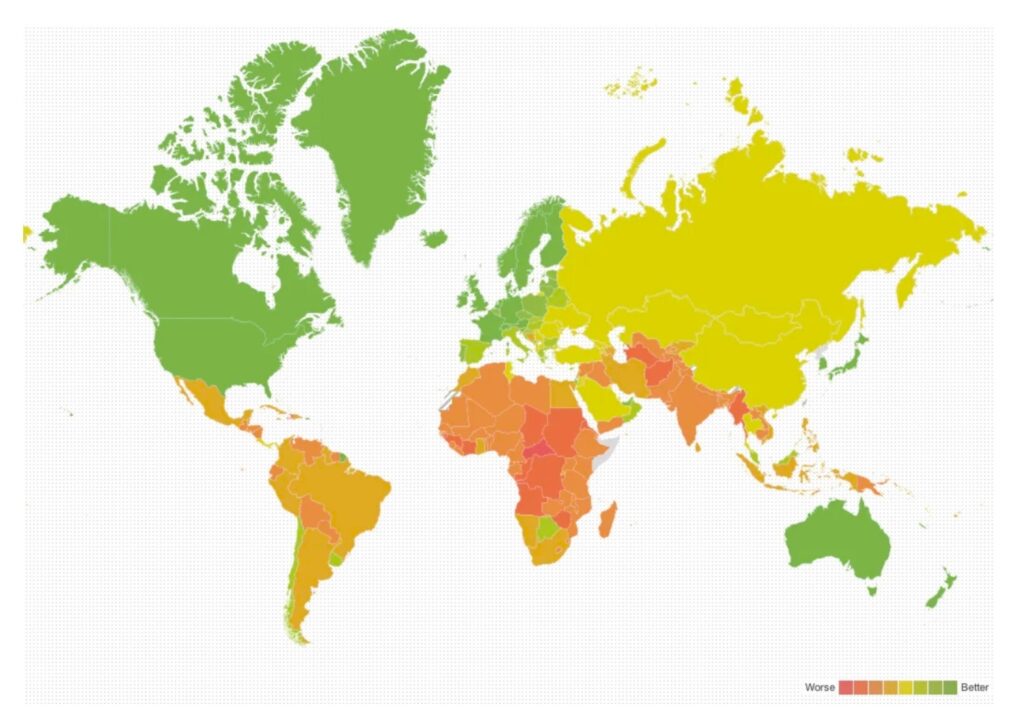
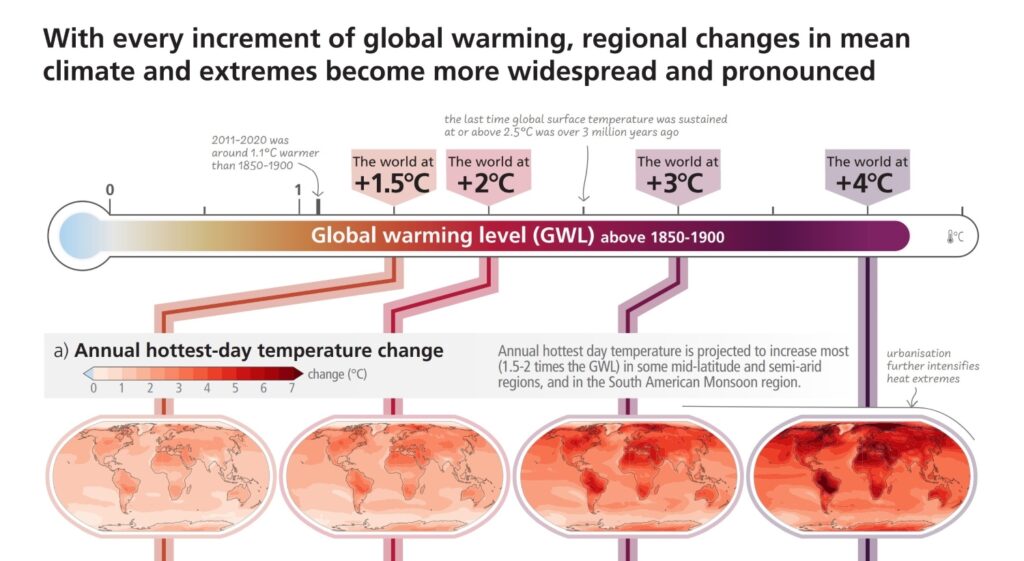
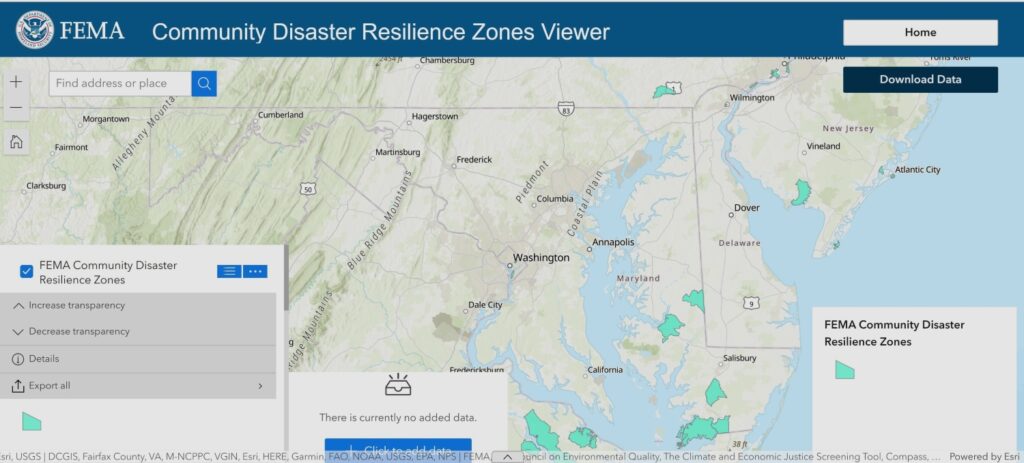
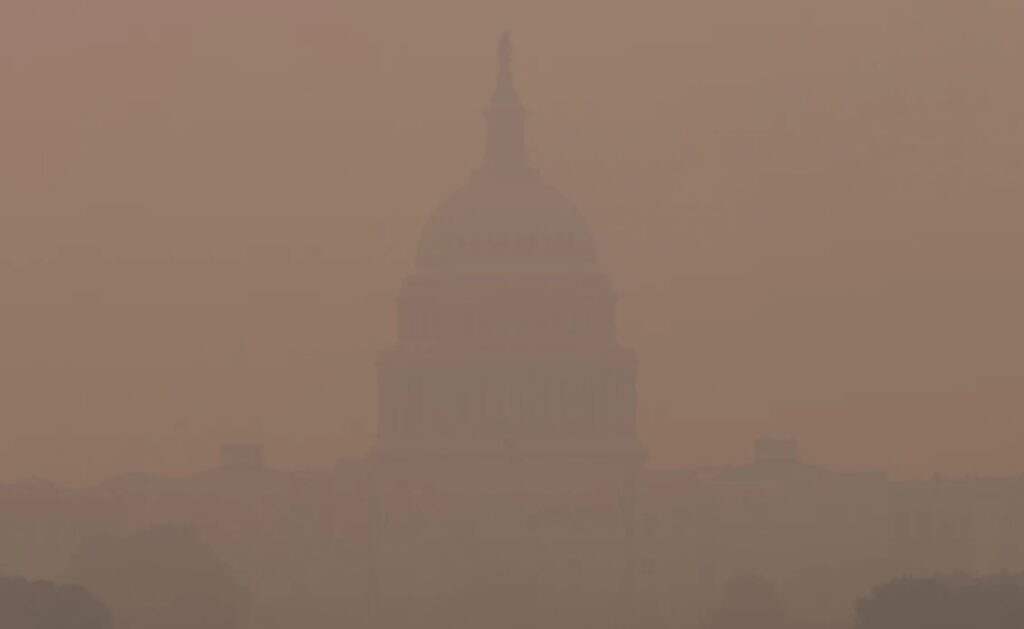
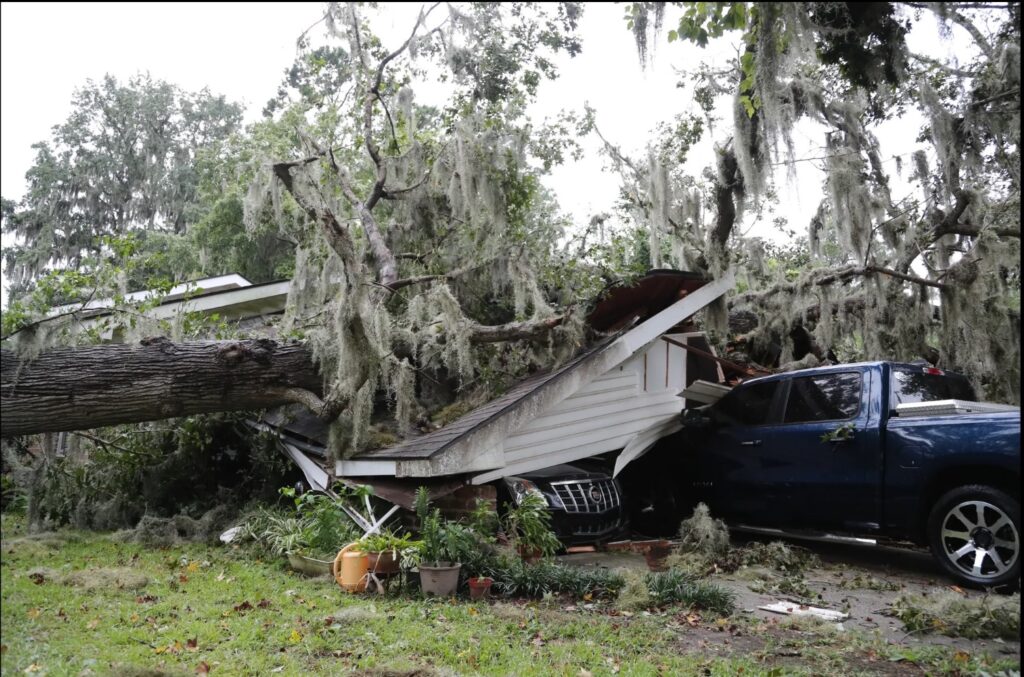
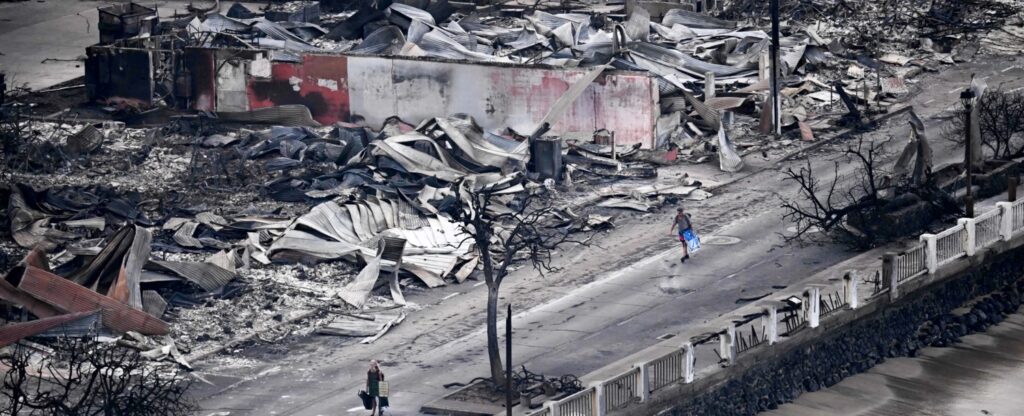
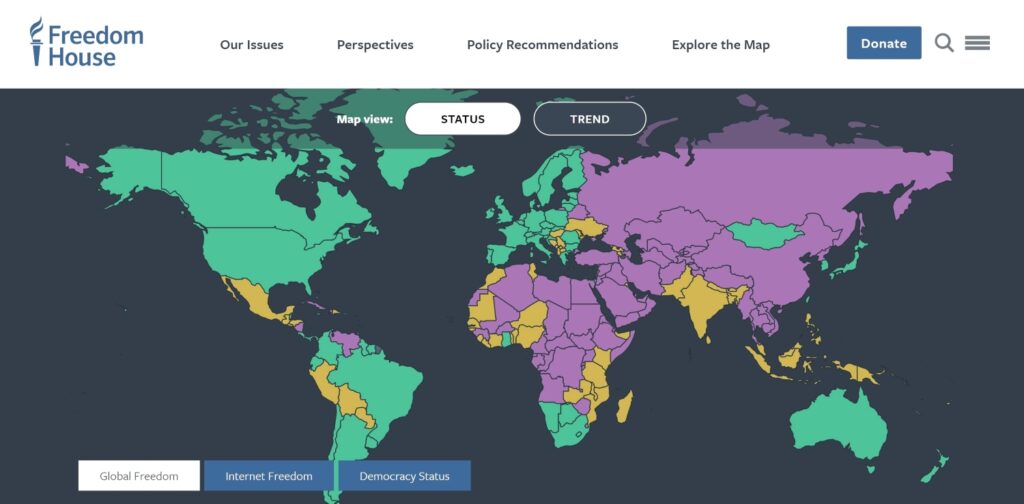











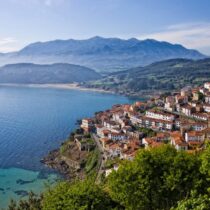













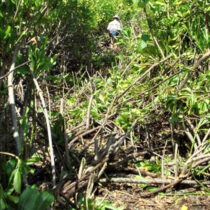






Comments are closed.